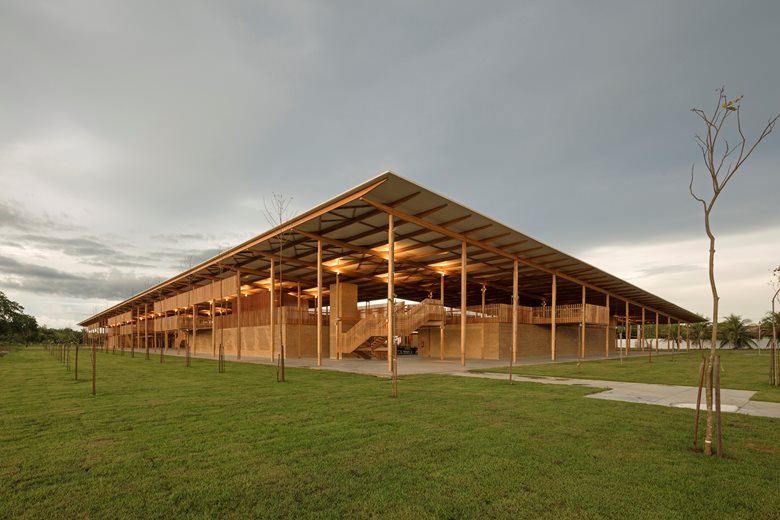Gustavo Utrabo
Architect Curitiba / Brazil
 1
1
If a community in the Xingu Indigenous park presents us with human challenges in facing nature's inconstancy, a campus in São Paulo makes us see the hidden layers of the city, and a school in Tocantins teaches us how to properly look at the collective. This shows that our practice is not defined by scale, form, materiality, or use, but in its sensitive journey alongside the people and their territories.
Despite our plural performance, the fact that we have received great awards and honors as Riba International Prize, given lectures, and extensively published our projects as in the El Croquis Monograph magazine, the studio is not restricted by gains or territorial limits, but by the positive impact that its projects generates in the communities and clients with whom it relates. It is by this approach that we propose learning about different ways of acting, together. Art, engineering, and society are constitutive parts of our practice. If one drives the imagination and the others make dreams possible, it is through this constant exchange that our performance finds its ground and makes our way to see, act and coexist in the world.

Estúdio Gustavo Utrabo manifests itself through a sensitive look at the world. Our path crosses unpredictable spaces, untold stories and yet non-existent landscapes, allowing us to continuously exercise our thinking, as well as our architectural practice. We propose to expand the architectural field by imagining spaces with poetic sensibility and constructive quality, based on critical reflection towards the transformation of society and stimulated by perennial research. Our research is allied to educational practice, making it possible for us to mediate and debate diverse themes, even those that seem less important to architecture, but appear to be essential to us. It is from these places that we invent ways of coexisting and from where, together with our network of collaborators, we find ways to face contemporary challenges. If a community in the Xingu Indigenous park presents us with human challenges in facing nature's inconstancy, a campus in São Paulo makes us see the hidden layers of the city, and a school in Tocantins teaches us how to properly look at the collective. This shows that our practice is not defined by scale, form, materiality, or use, but in its sensitive journey alongside the people and their territories. Despite our plural performance, the fact that we have received great awards and honors as Riba International Prize, given lectures, and extensively published our projects as in the El Croquis Monograph magazine, the studio is not restricted by gains or territorial limits, but by the positive impact that its projects generates in the communities and clients with whom it relates. It is by this approach that we propose learning about different ways of acting, together. Art, engineering, and society are constitutive parts of our practice. If one drives the imagination and the others make dreams possible, it is through this constant exchange that our performance finds its ground and makes our way to see, act and coexist in the world.

 2
2

